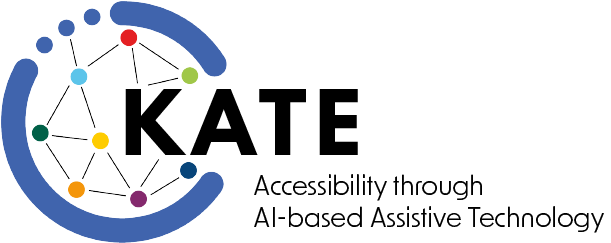Discrimination and integration potentials through AI for people with disabilities from a technology assessment perspective
Supervisors: Armin Grunwald (KIT), Linda Nierling (KIT)
Faculty: Humanities and Social Sciences
Currently, discrimination through algorithms is intensively debated in scholarly literature. However, the academic discourse algorithmic bias is mainly focused on topics of race, class, or gender, while tending to neglect discrimination potentials for people with disabilities (Lillywhite & Wolbring 2021). Obviously, there are risks of discrimination for people with disabilities which on top meet a highly diverse group of people with special needs. Thus, a perspective of an “accessible and inclusive AI” (Tilmes 2022) should be further developed from a Technology Assessment (TA) perspective, both on conceptual but also backed on empirical levels. Specific discrimination risks of people with disabilities in the field of AI might encompass e.g. the representation/ integration in training data and might be continued in algorithmic procedures for decision support, e.g. job applications. Further there are new AI developments in sight, namely developments towards “emotional AI", in which new biometric practices identify and prospect psychological conditions which might pose new developments while encountering people with disabilities as a vulnerable group.
In this PhD project, the research fields include:
-
To analyse the actual discourses on algorithmic bias and connecting it to disability studies
-
To perform a technology assessment study on new AI developments assessing their inclusive vs. discriminatory potential for people with disabilities
-
To develop a conceptual perspective on the normativity of future AI development with a special focus for people with disabilities.
The PhD will address this gap in research by first conceptually connecting the academic discourse on algorithmic bias to disability studies. Second, it should focus from a TA perspective on concrete AI applications and analyzing its inclusive and discriminatory potentials also with regard to a technology development perspective applying a normative perspective in TA.
Desired qualifications of the PhD student:
-
University degree (M.Sc.) with excellent grades in social sciences, human-computer interaction, STS or related fields
-
Good English language skills (your responsibilities include writing publications and giving international presentations)
-
High interest in performing research in an interdisciplinary setting

